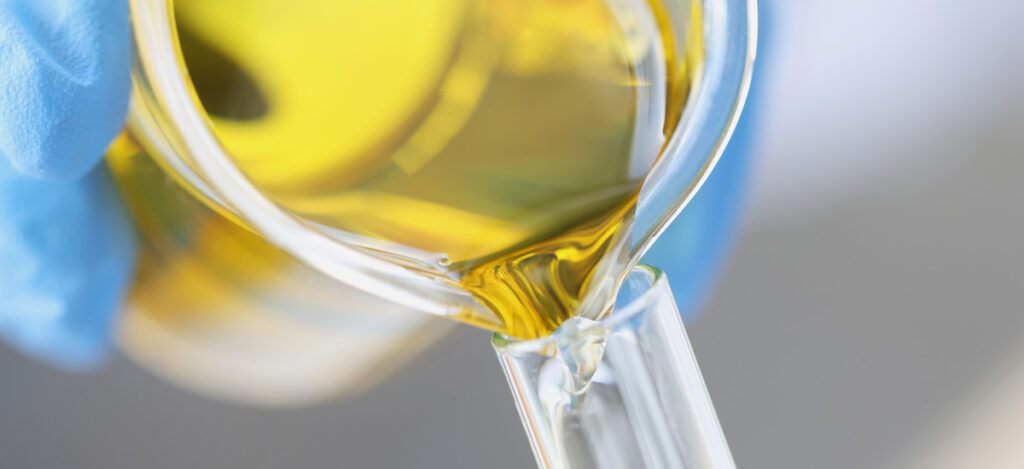Stability Testing vs. Accelerated Aging Testing
What is accelerated aging?
Simply put, accelerated aging is the process of making something experience the passage of time at an accelerated rate. Accelerated aging processes for rapid stability tests assume that a particular packaging system is expected to age at the same rate regardless of the physical configuration of the package or what it contains inside. The accelerated aging test method is based on a particular theory. The theory is that a packaging system in storage exposed to external stress that is more severe than normal environmental stress for a shorter time is equal to the normal amount of stress the same packaging system experiences in storage over a longer time. This theory is based on an Arrhenius reaction rate function that predicts the deterioration of materials over time. Drug stability testing, accelerated aging test methods, and microbiological stability will all be covered in the following article.
What is stability?
Stability is a suspended state where there is no change (or small changes happening internally at a consistent rate such that the net change moment to moment is zero). In terms of FDA regulations, stability covers five FDA categories: chemical stability, physical stability, therapeutic stability, toxicological stability, and microbiological stability of a medical device or product. Chemical stability refers primarily to drug formulations and ensures that all molecules in a formulation remain in their therapeutic state and do not undergo additional chemical reactions over time. However, medical devices must also be protected from oxidative chemical reactions or other chemical reactions that could cause the degradation of product materials. Physical stability refers to biological therapeutics (maintaining the physical integrity of protein structures over time) and to the physical functional stability of medical devices or combination products. Therapeutic stability refers to the stability of a product or device’s therapeutic efficacy over time. Toxicological stability refers to the stability of the medical product, cosmetic, drug, or medical device’s toxicity levels over time. Finally, microbiological stability is the sterility of the product over time.
How are stability and accelerated aging different?
Stability describes a state, whereas the accelerated aging test method describes a process. Stability covers chemical stability, physical stability, therapeutic stability, toxicological stability, and microbiological stability. Thus, stability is a broader term than accelerated aging. In contrast, accelerated aging refers to making an item experience the passage of time faster. Accelerated aging is used to accelerate the holding time of stability testing but does not play a part in the state of stability itself.

What are the differences between stability testing and accelerated aging testing?
Drug stability testing (and medical device stability testing) covers far more than accelerated aging testing alone. Stability also covers acceptance criteria for chemical, physical, therapeutic, toxicological, and microbiological stability. Multiple factors, such as the compatibility of product additives, materials, active ingredients, and agents, impacts drug stability during testing. Tests for physical, therapeutic, toxicological, and microbiological stability must be performed on packages that have been in storage until the desired expiry date to prove multiple levels of stability over time.
Accelerated aging is a subset of stability testing and is a way to store packaged samples such that the samples experience the passage of time faster. Accelerating aging is not possible for all product-packaging systems. This is because the temperature for an aging study should be below the material transition temperature of the sterile barrier system. If the material transition temperature of your packaging system is at 35°C or below, accelerated aging will not be a viable option, and real-time stability studies are the only stability testing option. In most cases, accelerated aging will age samples two-fold. Thus, samples stored a year under accelerated aging conditions support a product expiry of two years, while samples stored a year under real-time stability studies only support product expiry of a year.
Why are stability and accelerated aging testing important for your medical device or product?
Stability studies are necessary to prove that products and medical devices are safe to use and performed their desired functions over time. The sterility (microbial stability), chemical stability, and physical stability of a product over time are extremely important to patient safety and product efficacy. If a drug chemically degrades or the physical properties of a medical device degrade over time, the chemical and physical functionalities of these medical products will be jeopardized, causing patient illness or worsening of disease symptoms.
Accelerated aging is a stability test for your medical device or product that allows you to determine the effect of the passage of time on the packaging protecting your product. The most common accelerated aging studies allow you to determine the stability of a product in half the time a real-time stability testing takes. Any data obtained through accelerated aging may be used to support the expiration date. Thus, accelerated aging is helpful to obtain necessary stability data for pre-market approval faster.
Summary
Overall, stability and accelerated aging integrity testing are critical components of regulatory testing for FDA-approved medical devices, cosmetics, and products. Joint stability and accelerated aging testing cover a wide range of assays. Ensure you choose a contract testing organization that can support all the combined stability and accelerated aging tests for your unique medical device or product needs.
MycoScience is a contract manufacturing organization that specializes in Stability Testing, Accelerated Aging, Bacterial Endotoxin Testing, Preservative Efficacy Testing, Sterilization Validations, Bioburden Testing, Cleaning Validations, Microbial Aerosol Challenge Testing, , Microbiology Testing, Cytotoxicity Testing, EO Residual Testing, Package Integrity Testing & Environmental Monitoring services for medical device companies, and allied industries. MycoScience also offers sterile syringe filling and vial filling for parenteral products. MycoScience is an ISO 13485 certified facility.
References
Michael J. Akers. Sterile Drug Products Formulation, Packaging, Manufacture, and Quality. Drugs and the Pharmaceutical Sciences. Informa Healthcare. 2010.
MycoScience Laboratories. Accelerated Aging Testing For Medical Devices. 2021.
American Society for Testing and Materials. West Conshohocken, PA, United States. (ASTM D3078-02).
Sharing this in your social netwroks

